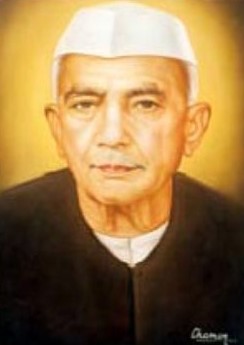Founder & Former Prime Minister
Chaudhary Charan Singh was born on December 23, 1902, in Noorpur village, Hapur town, Ghaziabad district of Uttar Pradesh, into a humble peasant family. A bright student, he earned his Master of Arts degree in 1925 and a Law degree in 1926 from Meerut College. In February 1937, at the age of 34, he was elected to the Legislative Assembly of the United Provinces (now Uttar Pradesh) from Chhaprouli in Baghpat.
In 1938, he introduced the Agricultural Produce Market Bill in the Assembly, aimed at protecting farmers from exploitation by traders. This bill was later adopted by most Indian states. Inspired by Mahatma Gandhi’s philosophy of non-violence, he joined the Indian Independence Movement. Post-independence, he aligned himself with rural socialism.
As Revenue Minister of Uttar Pradesh in 1952, one of his key achievements was the abolition of the Zamindari system and the implementation of Land Reform Acts. A staunch critic of Jawaharlal Nehru’s socialism, he eventually parted ways with the Congress party in 1967 to form the Bharatiya Lok Dal. He served twice as Chief Minister of Uttar Pradesh.
In 1979, Chaudhary Charan Singh became the Prime Minister of India. In his Independence Day address that year, he foresaw Pakistan’s nuclear ambitions as a significant threat to India. He also emphasized the need to reform labour laws to make India globally competitive and initiated high-level diplomatic ties with Israel, which were later scaled back by Indira Gandhi’s government.
An author of several books, Chaudhary Charan Singh remained deeply connected to the farming community throughout his life. He passed away on May 29, 1987, and his memorial in New Delhi was named *Kisan Ghat* in honor of his lifelong dedication to farmers in northern India.
